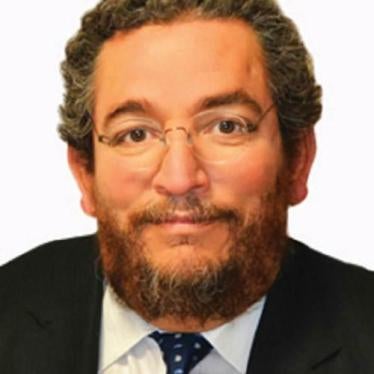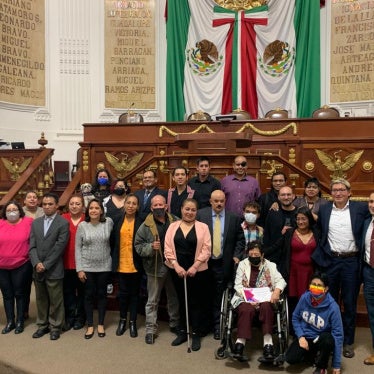Leonardo Barcellos, a 32-year-old disability rights advocate, died of asphyxiation on February 26 after a power outage at his home in Rio de Janeiro prevented the machine he used to breathe, from working, his mother told me. He had progressive muscular dystrophy, a condition that weakens muscles.
I met him at an institution in Rio de Janeiro in 2017. He was 24 at the time and had lived there since he was 15, sharing a room with 24 others. My colleague and I found him lying in one of many beds, without even a curtain for privacy.
Finally in early 2018, after 10 years of fighting for his right to live in the community, Leonardo left the institution and moved into his home with his mother, Zélia. However, they faced immense difficulties securing the necessary support, including initially being denied municipal home care because local rules deemed him ineligible. Zélia lacked the physical strength to support him, and it was only after many bureaucratic hurdles that they obtained municipal home care.
Recently, a colleague at Access Living, a disability-led service and advocacy center in Chicago, told me that many institutionalized people fear leaving institutions because they doubt they will receive the support they need in the community. Leonardo’s tragic death illustrates those fears and the impossible situation people with disabilities find themselves in Brazil, the United States, and many other countries, leading to their segregation from the community. Under international law, everyone has the right to live in the community with necessary support, regardless of their needs. However, Leonardo and his mother depended on donations for basic necessities. When I last visited them, in November, they were desperately seeking a new electric bed, which he needed because he could no longer sit on a wheelchair, and his old bed was falling apart. If he had been able to get a small energy generator, it most likely would have saved his life when the power went out in February. The sell for as little as 1500 reais (USD250).
When a colleague and I met Leonardo in 2017, he sang to us and told us he dreamed of becoming a famous musician. His extraordinary voice touched many. Beyond music, he used his experience to expose the harm of institutions and advocate for community living. I am grateful he shared his story in this Human Rights Watch video and with Brazil's media. Speaking out against injustice, especially committed against oneself, can often be challenging.
During a visit to Brazil in 2023, we found that even in the most inclusive residences for people with disabilities, restrictive practices were still in place, limiting residents’ most basic rights to interact with people outside institutional settings. Unfortunately, Brazil’s new Plan on the Rights of People with Disabilities once again fails to include any concrete actions to build strong community support systems.
During my visit to Brazil in November, I had the opportunity to speak with the Human Rights minister, Macaé Maria Evaristo Dos Santos. I reiterated the significant challenges people with disabilities face in accessing support within the community. I emphasized the urgent need for a national deinstitutionalization plan to provide alternatives for the thousands of people with disabilities who currently have no choice but to remain institutionalized.
It is unacceptable that the price a person with a disability must pay to live in the community is to rely on the good will of donations and support from friends and family members that are rarely sufficient,
Leonardo’s life ended due to the lack of adequate government support. He was never eligible to receive the disability benefit (Benefício de Prestação Continuada - BPC), which is conditioned on a monthly income below 379,50 reais (79 USD), one fourth of the minimum salary because his mother’s pension was above that threshold. The program fails to consider the additional costs for equipment and supplies associated with living with a disability.
It enrages me that a 32-year-old’s life ended this way. Brazil urgently needs a deinstitutionalization plan and community-based support to ensure that people with disabilities live in dignity and safety. Families shouldn't have to sacrifice their lives to provide 24/7 caregiving. The national care policy being developed by the Ministry of Social Development is a key chance to address this. Support needs should never justify exclusion. Leonardo should still be with us.









